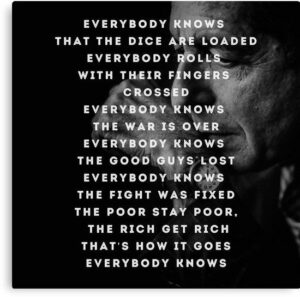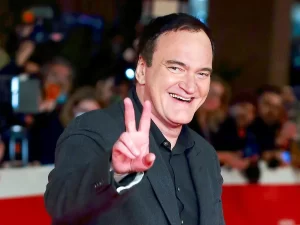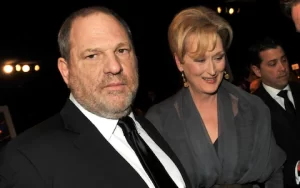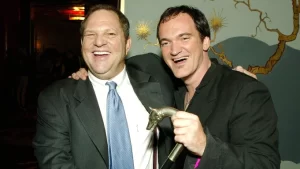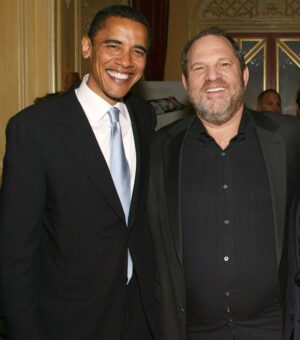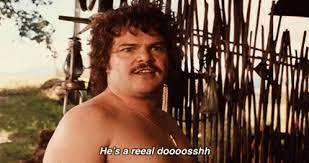
In case any of you still bother to keep up on the formerly relevant enfant terrible video clerk turned trashy Hollywood director, the Tarantino fella put out a book late last year (timed for Xmas sales) called “Cinema Speculation”. Immediately, it’s clear Tarantino is much more digestible in a book than to hear his arrogant, condescending, messy TV interviews, in which his superiority complex bleeds through too much or he unnecessarily and awkwardly admonishes an interviewer. Likely in those interviews he had soaked up too much of the Harvey Weinstein personality, Tarantino having once pronounced Weinstein his surrogate father. Oops.
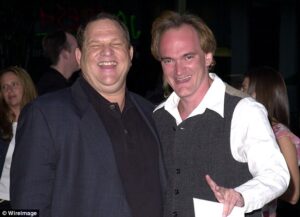
Regardless of his films being “entertaining”, I still think that Tarantino should have done much more to admit some fault in the post-Weinstein MeToo debacle, but that’s not really his thing. QT is not known for grace or for wisdom. His brand of enthusiasm is always of a video clerk nerd who stumbled into a dream life due to the Hollywood machinery creating an artistic void by the preposterously decadent end of the roaring cokehead ’80’s. Out of that lost ‘80’s decade, Tarantino and a number of directors (much more metaphysically proficient than QT) carved the ’90’s (Jim Jarmusch, Richard Linklater, Steven Soderbergh, Todd Solondz, David O. Russell, PT Anderson, etc.) … and that video clerk nerd is pretty much where this Tarantino guy still is hovering with this book and his films.
But the new book does distill and control Tarantino’s runaway train diarrhea brain into cogent thoughts and some original ideas, albeit much more of a heavily doctored dictation in print, not a written “book”, most likely.
For a guy whose whole life is about worshipping and mythologizing celluloid fantasies and channeling controlled impotent rage and being a guy who admitted to propping up MeToo poster boy Harvey Weinstein for many years (prior to that relationship becoming inconvenient and obsolete), who had also looked the other way, and who then got off easy when the reckoning exploded, Tarantino is still miraculously living the dream.
It is a good thing that Tarantino focuses on lesser-seen films in the book, for the most part. He still has his overwhelming obsessions with Taxi Driver and Steve McQueen and Sam Peckinpah, hardly obsessions that are rare or obscure by any film fanatic measure, but most of the Tarantino guy’s passion still seems to lie with testosterone and predictably gun-soaked celluloid. So that hasn’t changed at all. Absolutely no surprise that QT’s focus in this book is directors like Don Siegel and films such as Siegel’s Dirty Harry and the book seems largely devoted to guys who were curiously and intensely obsessed with other guys, writing off the subtextual homoeroticism as studies of the male psyche. It would almost be a relief if Tarantino came out of the closet as a gay man, because he really does seem to be quite locked in with a kind of repetitive adoration of the male psyche and male aesthetics. His new book Cinema Speculation is firmly in the butch tough guy camp, almost to a fault: “look how seriously goddamn manly I am”. With all of the films and genres that Tarantino has seen and liked and studied, the book is kind of a narrow slice of Hollywood into which he focuses.
The book is as usual “entertaining”, as much as anyone who can manically speak at length about movies at a party can be expected to be, and certainly the more passionate Tarantino fanatics will have a possible mental orgasm or two while reading this. A good portion of the Tarantino observations in there are pedestrian and too well-known by now, but with the usual Quentin Tarantino spin that makes it seem like some of these films are far more important than they really are or that Tarantino’s observations are somehow brand new insights. They’re not. The passion for Steve McQueen as an actor and as a personality that Tarantino has and writes about in his book was primarily a garden-variety shallow Hollywood pitfall, the adoration of silver screen idols, yet another PR campaign by agents and film studios for a popular and profitable screen presence. McQueen was a decent actor, albeit with a very narrow emotional range, but there really wasn’t much behind the curtain, as with most actors and filmmakers… no more or less than anyone else. McQueen could certainly keep your attention during his numerous successful action films. And Tarantino has always had a raging hard-on for action films and guns and gore and things that most of us gave up after our adolescence. The depiction of violence in Tarantino’s films has definitely been one of those looping and enduring cartoonish elements in his body of work that still reflects that Tarantino has never had to experience any kind of real or impactful physical violence in his life. Reservoir Dogs in 1992 may still be the only Tarantino film that seems to come close to capturing the urgency and disturbing quality of real-life violence.
Usually violence in a lot of films is just a cheap gimmick to attract attention and that’s been most of the action films and crime films Hollywood has produced, particularly much of the mainstream garbage. But even a lot of the indie productions descend into gratuitous violence to hold the eyes on the screen and so have many of the other films not his own that Tarantino has personally promoted as the best of Hollywood, Hong Kong, and elsewhere in the world. Tarantino does not really ever deviate from his facile comfort zone much. He’ll name-drop Godard or other European directors in interviews, but inevitably in his films Tarantino relies almost entirely on schlock, action, horror, and B-movie contrivances, as if most B-movies were some kind of misunderstood Orson Welles masterworks. Most B-movies are almost entirely low-budget by force, often great, but more often failed attempts by some ambitious guy trying to make a shitload of money via some spin on someone else’s original idea, trying to break into the big studios … and failing spectacularly, usually. Most B-movies remain on the trash heap for a reason. Tarantino and his brand of high-budget B-movie is just kind of one of those rare success stories. But he’s only parlayed his success into more of the same kind of films with diminishing results in his ideas and now a lavish elite celebrity lifestyle and movie star stable upon which to draw.
Tarantino certainly never used any of his money or power to do anything of note for women after his close friend and trusted confidante Harvey Weinstein went to prison for the rest of his life for crimes against women in the film industry. Tarantino merely switched over from Weinstein’s film company to Sony pictures when Weinstein became unavailable in prison. Sony pictures was happy to welcome the director aboard, with no questions asked, not important ones. So Tarantino continued to make expensive films and rake in the profits, sliding free from any accountability for the Weinstein shitstorm.
Tarantino doesn’t seem to have too much interest in humanity overall, other than reflecting the violence and cashing in. Really just another Hollywood gigolo counting his money. Nothing too noble in that. But a lot of you like that kind of crap, so then this is your guy, your book, in that case. This book is for those of you who like to say “Lighten up” regarding favored artists who were accomplices and accessories to major felonies, particularly forgiving of their favorite actors (eg. Johnny Depp), singers (eg. James Brown), or writers (eg. Judy Blume). You rush to their defense, even if settling out of court or shitty plea bargains makes you feel better about whether or not the truth was compromised or there was a miscarriage of justice or the young lady was actually raped in their beautiful home. Sometimes, seems rarely, they get caught and go to prison (eg. Phil Spector and/or Tarantino’s surrogate father Harvey Weinstein).

Tarantino coyly portrays a simulated ethical high road to convey that he doesn’t kiss and tell, which is likely why he never threw himself entirely and passionately into the discussion about Weinstein, as he always does when promoting a film, other than almost entirely relieving himself of ethical responsibility, and making one or two mildly contrite statements, but QT was directly in the epicenter of one of the biggest and most disgusting recent scandals in Hollywood and modern American cultural history, and he could easily have weighed in more, as Kevin Smith and a few other directors did, but Tarantino chose not to speak much about the storm he had helped create by ignoring Weinstein’s abuses and rapes, as if the poor “victimized” (by Weinstein, QT claimed) Hollywood director was being honorable by not jumping on the Weinstein revenge pile… but ultimately Quentin looks like he was protecting himself and also covering his ass in case, someday, Weinstein made it back to power, which clearly will never happen.
Of course, like a lot of alleged crimes, we may never know all of the details. And celebrities in artistic endeavors can always distract us by saying “My work speaks for itself” or “my main concern is the art and the films, not the distractions”, meanwhile their patrons and father-figures are securing financing via cocaine cartels or raping regularly on the casting couch, but somehow in their bent and greedy little minds the ends justify the means, to the compromised power brokers and celebrities, viewing themselves as royalty that presides above the Law, particularly in Hollywood and on Wall St., as if a good film or large amount of money cures all societal ills. Judy Blume’s only grandson can get the most expensive attorneys to plea bargain a rape charge at her palatial estate in Martha’s Vineyard down to a more legally innocuous assault charge to protect her career and “brand” and still be portrayed as a feminist icon. Things are made to go away. Tarantino can be financed exclusively by Harvey Weinstein’s world of pain and rape and be fully washed clean of any complicity, despite admitting publicly to looking away and not doing enough to stop the crimes. And the next film washes it all down, washes the filth and the rats out to sea, in the view of the equally complicit public who continue to dive back in, as long as the popcorn is fresh and buttery and as long as the entertainment keeps them erect and properly aroused.
I don’t see how Tarantino will wind up remaining too important in the history of film in decades to come, if the human race survives into the distant future to talk about this kind of stuff with any kind of objective humanity. Glamorizing the kind of criminal scumbags, idiots, and human trash that Tarantino focuses on in his films, without much real context, seems cool if you’re an adult into nakedly escapist comic books and fantasyland and torture porn, and that’s fine (to you) if watching others get killed on film is arousing for you in the privacy of your own home, but this kind of contempt for people as a whole just doesn’t help anything get better much at all, even by writing a book like Cinema Speculation to try to put into a supposedly noble context, albeit in service of the original profit. It’s not to say that film directors and actors have to become holy men or holy women – that’s way far beyond the pay grade of people like Tarantino, Weinstein, etc. to become spiritual guides or to channel golden arcs of mystical energy, even though many of these royal dipshits develop very malignant god complexes. Artists, writers, directors don’t have to necessarily change the world, but the fact that so much money and fame has been poured on people like Tarantino just means that we continue to live in a world that values primarily the acquisition of money, the primacy of sleazy cesspools like Wall Street, and the victory of chronic corruption over more real and more substantial progress. The ethically compromised are making thinly veiled excuses, writing books about themselves and their passions in order to fashion more armor for their careers, and they’re romanticizing letting the bad guys win, even if they let one or two who get caught red-handed go off to prison every now and then. But they only let that happen after doing everything they can to protect their pals with piles of cash and absurdly powerful attoneys and villainizing the rape victims.
A lot of people have already kind of given up on the human race, so that explains part of the Tarantino success and the success of every other celebrity that is okay with high crimes. So many harbor contempt for and dismissal of human nature, even if it is often true and certainly the human race provides a lot of reasons to want to give up on the survival of the species. But all that is entirely up to you. This Tarantino book will entertain you to death, especially if you’re into the starkly brutal Tarantino world where testosterone-induced noir tales of testicular cancer give you a particular strain of joy, but it’s definitely not going to change you or any part of anything out there anywhere and the book is definitely not really that important at all, other than to those of you who really want to hear every word Tarantino has to say about a few of his favorite action films. I’m not sure if it’ll inspire any of you to make films with any more value than what the Tarantino lad has come up with, but perhaps this is just what… the world wants and deserves? ⚡
